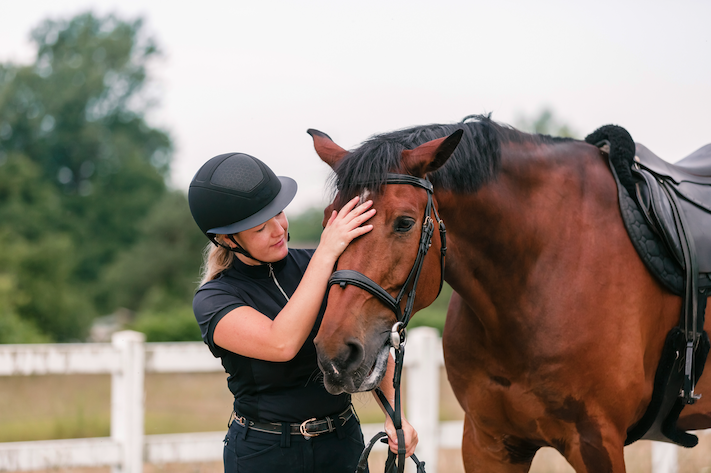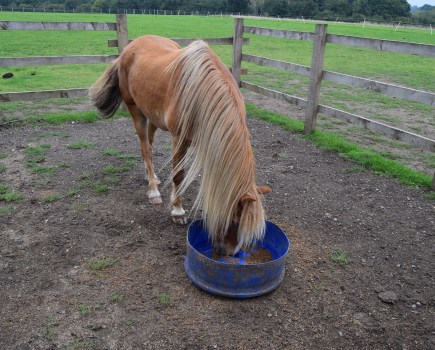In terms of what you leave in your estate on death, horses for the purpose of the law are considered to be ‘chattels’ — basically, an ‘item’ to be left to your beneficiary (much like a piece of jewellery or a motor vehicle).
Over the last few years there has been a significant increase in horse prices. Horses generally have become valuable assets to purchase and this applies not just to performance horses, but also to leisure horses who are mostly used for hacking, riding club all-rounders and all those in between.
Could a dispute arise over your horse on death? The answer to this question is yes — and it does happen.
A recent study showed that only 35% of UK adults have made a will. A national report also found that 42% of adults in the UK had not spoken to anyone about what should happen to their estate upon their passing.
What happens if you don’t have a will?
If you do not have a will, your estate passes under the “law of intestacy”. This means all your personal assets pass to your nearest living next of kin.
It may be the case that you do not wish for your next of kin to receive your estate (or certain parts of it) and if this is the case, then you must make a will.
This would of course include your horse. If the person receiving the estate is unfamiliar with horses and/or does not wish to keep the animal, it will be in their hands as to what happens to it and at their complete discretion.
Note of wishes
Their chosen course of action may not be your wish. It is better to make a will with a note of wishes so that these can be carried out. However, a letter of wishes is generally non-binding.
For example, if an individual shares their horse with their daughter/son, but their estate passes to their spouse, their spouse might want to sell the horse and take the proceeds, potentially causing a dispute and much upset for the co-owner.
Giving guidance and an indication of what should happen to the animal, such as whether the horse should be sold or whether a co-owner should be given ‘first refusal’, can avoid disputes arising.
Nominating the right person for your horse
You might already have a will in place, but does the person who you are leaving your estate to wish to take on your horse? Have you thought about your horse specifically in the will-making process?
You can set out your wishes in a will or in a letter which accompanies your will. In some cases, it will be very straight forward. The horse will be advertised, sold and the funds will fall into the estate.
Alternatively, the horse will pass to your beneficiary who may keep the horse for themselves and take over the legal ownership of it.
Horses with little or no monetary value
Matters can be more problematic with older horses, retired horses or horses with medical issues or special needs. Although these horses are much loved, it may often be the case they have little or no monetary value.
An important but emotive issue to discuss is whether you would want to have your horse put to sleep if you were not here to care for them.
Consider the alternative: would you want your horse to end up in the wrong hands or be passed from pillar to post if they are older or have certain quirks/behavioural or medical issues?
Older horses or those with medical issues can also be very expensive. Ongoing prescription medicines and vet bills add up and it may be that your beneficiary simply cannot (or will not want to) take this expense on.
With the best will in the world, if your beneficiary does not wish to take an animal on, it cannot just be dropped on their doorstep as other personal items could be. This could lead to headaches for the estate administrators.
In some cases, the beneficiary might wish to enter into a Deed of Variation or a disclaimer to provide for someone else to receive the horse instead.
Who takes control of your horse on death?
On death, the horse should be the responsibility of your personal representative (your executor or your administrator if there is no will) until they are able to pass the horse on to the beneficiary.
If you keep your horse on livery, there will likely be plenty of people to step in and be ‘care takers’ of the horse until their future is considered. However, caution needs to be taken by your personal representative to ensure that no harm comes to the horse which would reduce its value.
In addition to making a will, it is always prudent to consider putting in place a plan or instructions if you stable your horse at your own property or a private yard where there are no others to assist.
You might want to ask if a friend could be available to take over care of the horse on behalf of the executor in the interim or even move the horse to another yard for convenience.
Making a will that covers horses
Making a will which covers your horse can give you some say in what happens and can avoid disputes where there is argument over what happens to the horse.
If the horse is of significant value, any beneficiary who has no interest in it will likely want the horse to be sold to realise the value. There may be another beneficiary who wants to keep the horse, but it cannot be split in half and cannot always be amicably shared.
Regardless of their value, horses often become part of the family and are much loved. An argument over what is effectively “a member of the family” can be distressing, but is easily avoided by planning ahead.
Do this in conjunction with your loved ones if possible, so that everyone is aware of what your wishes are, and make sure you have a valid will with instructions which deal with the practicalities of horse ownership.
Disputes involving horses
A variety of disputes could arise concerning your horse’s future, even if a will is in place.
It might be that it cannot be agreed as to who the animal belongs to or what should happen to it. Alternatively, it might be being withheld or removed without permission by another party.
If a dispute arises, it will be dealt with in the same way as any normal estate dispute and the Court may be required to intervene.
Like with any estate litigation, the first step would be for a ‘letter of claim’ to be sent on behalf of the executors and/or the beneficiaries of the estate. This would set out:
- Legal background of the matter and the basis of the claim
- Factual background
- Details of the estate
- Suggestions as to a pragmatic way forward.
Resolving disputes
The Civil Procedure Rules and the Court actively encourage that alternative dispute resolution (ADR) should be considered before any party escalate the matter to the Court.
There are many useful forms of ADR that are available to parties to try and amicably resolve the issues without the costs and risks of issuing Court proceedings.
These include:
- Round table meetings where the parties and their legal representatives can seek to discuss the facts, narrow the issues and find some common ground.
- Proposals in correspondence where parties can make suggestions as to a potential way forward.
- Mediation, where parties can use a mediator to help focus minds and find a solution as to the best way forward for all involved.
Alternative dispute resolution
ADR is often a much more cost effective resolution than issuing a claim in the Court for a judge to decide. It is extremely costly to issue a claim and to proceed to a fully contested trial. Proportionality (i.e. the value of the claim versus costs to trial) can quickly become an issue.
Horse ownership can involve a huge amount of emotional and sentimental attachment which can cloud judgment to the point where even if it is massively disproportionate, an individual may be prepared to fight to the bitter end, whatever the cost.
If a dispute cannot be resolved through ADR and Court proceedings are issued, the procedure will involve the service of documents, a case management conference (an initial hearing to deal with the next steps and sometimes deal with costs), disclosure, witness evidence, and eventually a trial.
Going to trial
Trials can be several days long depending on the number of witnesses, the volume of evidence and the complexity of the matter.
When a matter proceeds to trial, parties are in the hands of the Court and judgment will be made, effectively determining a ‘winner’ and a ‘loser’ effectively.
Costs to trial are usually significant. The costs position is normally that the loser pays the winner’s costs (or a proportion of them), which can be financially devastating for the unsuccessful party.
Take steps now to protect your horse
In conclusion, there are many steps which can be taken to reduce the risk of a dispute arising in respect of equines. The most useful first step is to leave a clear and detailed will with letter of wishes.
Horses are often dearly loved members of the family, but this can become an issue, especially when the animal is of significant value.
What the horse means to one person, it does not necessarily mean to another — and this is where highly emotive issues can arise.
Main image: © Shutterstock
Related content
- What happens to your horse if you get a divorce?
- Buying an equestrian property: important things to consider
- Equine solicitor explains what the Highway Code changes mean for horse riders
- Ultimate guide to horse health insurance and vet fees cover
- Operation Snap: what it is and why more riders need to use it









